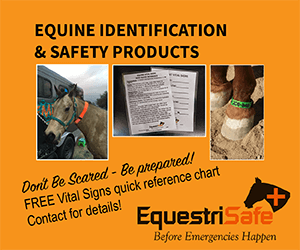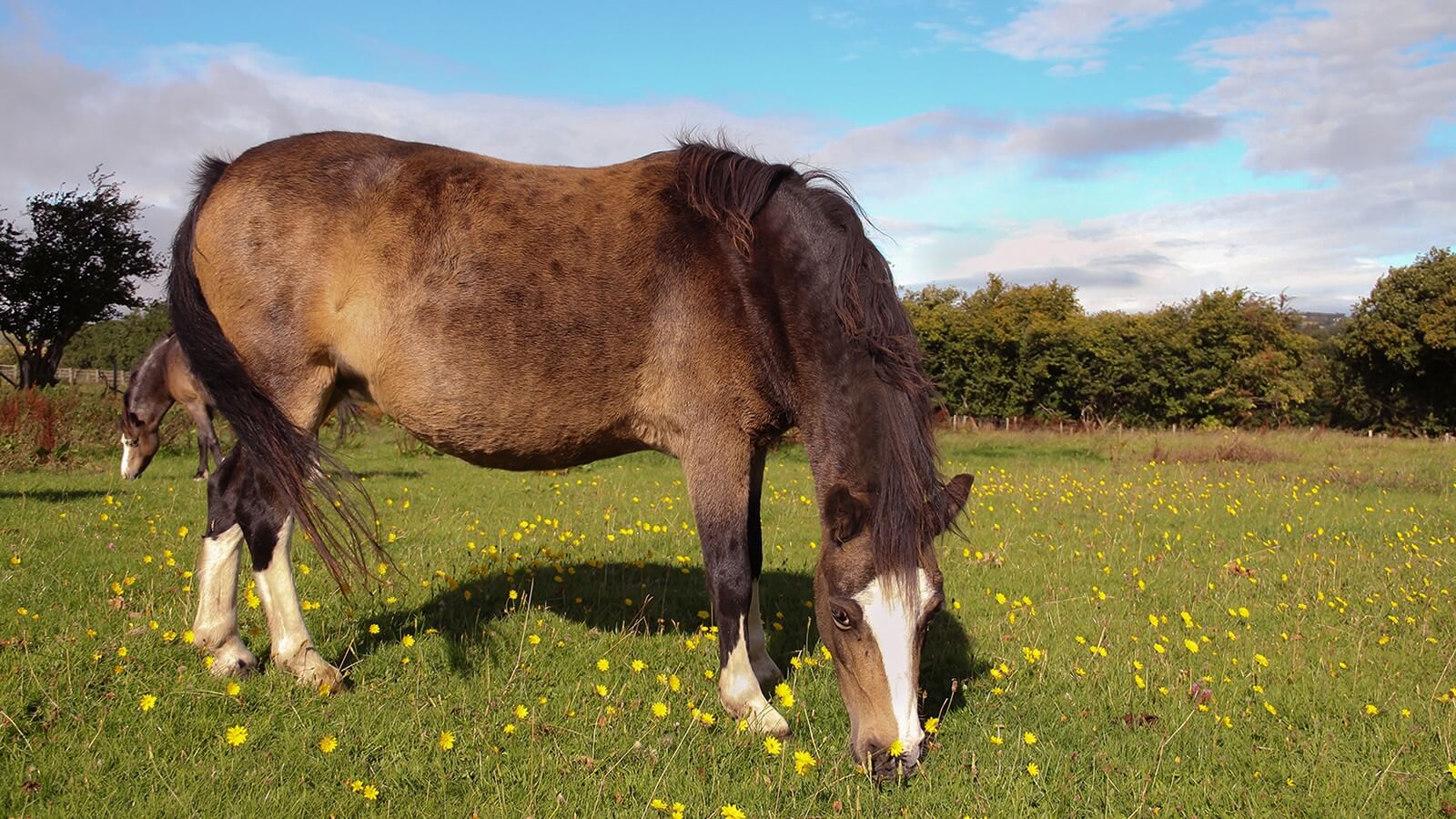Article by Eleanor M. Kellon, VMD for ECIR Group
Easy keepers and overweight horses and ponies have been around forever. Laminitis has also always been with us, and it’s no secret that overweight animals are at high risk. We now know that the vast majority of laminitis cases are caused by high insulin levels — hyperinsulinemia — associated with equine metabolic syndrome (EMS). Does this mean that being overweight or obese causes insulin problems?
It might seem that way superficially, but the logic is faulty.
Many horses that develop laminitis are overweight or obese. We know that the vast majority of laminitis cases are caused by high insulin levels. The correlation has always been obvious, and it didn’t take long for an assumption to arise that obesity is a laminitis risk factor and causes elevated insulin. There’s just one thing: it’s not true.
In the 2015 Bamford Study, published in the Equine Veterinary Journal, horses and ponies were fed either a control diet or one designed to cause obesity by feeding either excess fat or excess fat and glucose. The weight gain did not reduce insulin sensitivity in either group. Dr. Bamford has also clearly shown that insulin responses to oral or intravenous glucose have a marked variation by breed in horses of normal weight. You can read all of Dr. Bamford’s work in detail in his thesis here.
In another study (Selim, et al., 2015) two groups of Finn horse mares were followed on either native pasture, or intensively managed improved pasture. At the end of 98 days grazing, the mares on the improved pasture went from a body condition score of 5.5 to 7 and gained 145 pounds but this weight gain was not associated with insulin resistance.
If obesity isn’t a cause, why is more insulin resistance seen in obese horses? 25 to 50 percent of obese horses have high insulin (depending on the study) versus 10 to 15 percent of horses of normal weight having high insulin. The answer is simple. The obese horses are resistant to the effect of the hormone leptin, which results in increased appetite and weight gain. Yes, there is an association between obesity and high insulin, but obesity is the result, not the cause.
This is more than just splitting hairs. If you think obesity is a cause of high insulin then weight control becomes a treatment, even possibly a cure. When you realize it is a consequence, not a cause, expectations for results of weight loss become more realistic.
There are many benefits to weight loss, and it should be aggressively pursued, but it won’t make insulin resistance go away. Approximately 50 percent of horses with EMS are normal weight.
For more information visit www.ecirhorse.org and watch the Equine Cushing’s and Insulin Resistance Group’s film Diagnosis and Diet.
About ECIR Group Inc.
Started in 1999, the ECIR Group is the largest field-trial database for PPID and EMS in the world and provides the latest research, diagnosis, and treatment information, in addition to dietary recommendations for horses with these conditions. Even universities do not and cannot compile and follow long term as many in-depth case histories of PPID/EMS horses as the ECIR Group.
In 2013 the Equine Cushing’s and Insulin Resistance Group Inc., an Arizona nonprofit corporation, was approved as a 501(c)(3) public charity. Tax deductible contributions and grants support ongoing research, education, and awareness of Equine Cushing’s Disease/PPID and EMS.
THE MISSION of the ECIR Group Inc. is to improve the welfare of equines with metabolic disorders via a unique interface between basic research and real-life clinical experience. Prevention of laminitis is the ultimate goal. The ECIR Group serves the scientific community, practicing clinicians, and owners by focusing on investigations most likely to quickly, immediately, and significantly benefit the welfare of the horse.
https://www.ecirhorse.org/video.php
See this article in the May 2021 online edition:

The Northwest Horse Source is an independently owned and operated print and online magazine for horse owners and enthusiasts of all breeds and disciplines in the Pacific Northwest. Our contemporary editorial columns are predominantly written by experts in the region, covering the care, training, keeping and enjoyment of horses, with an eye to the specific concerns in our region.






